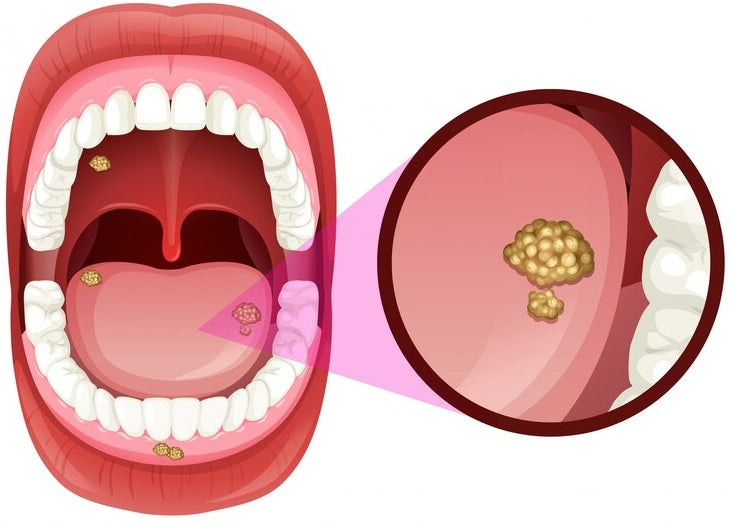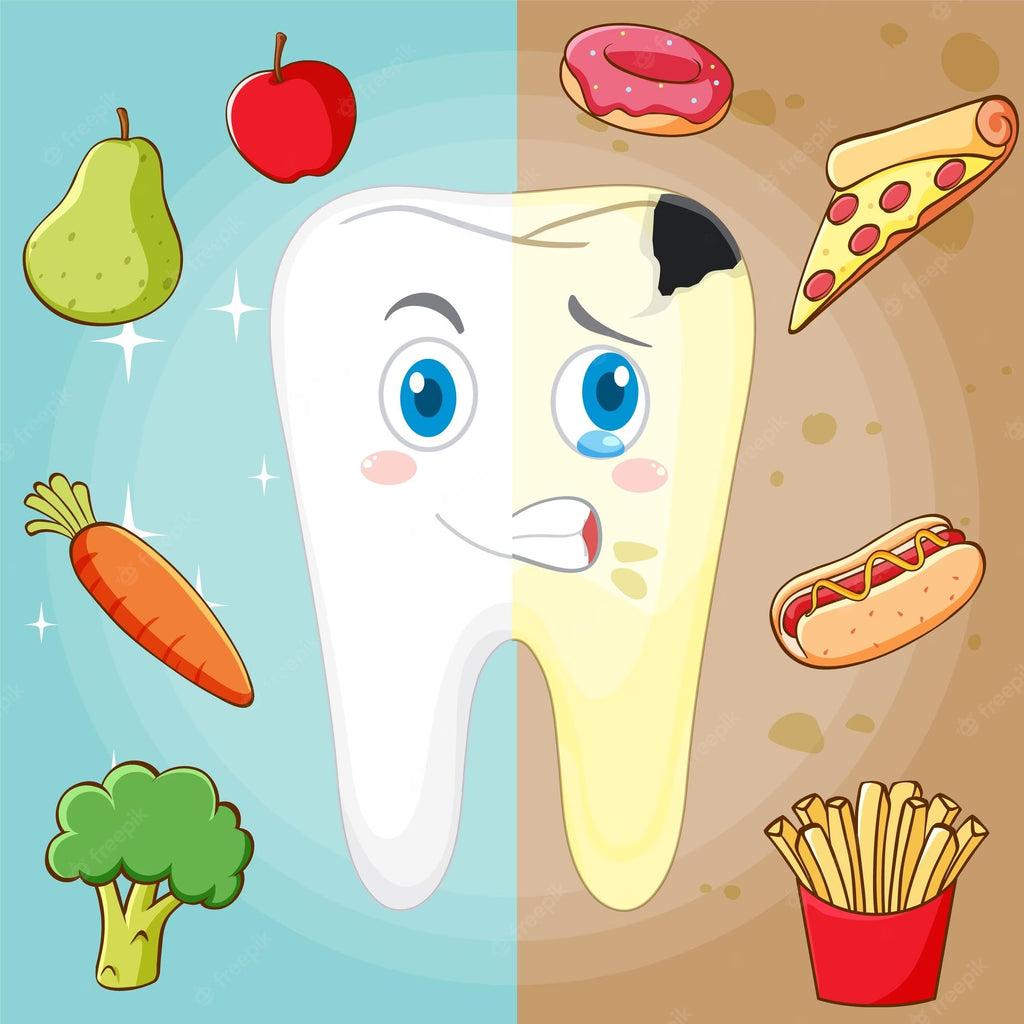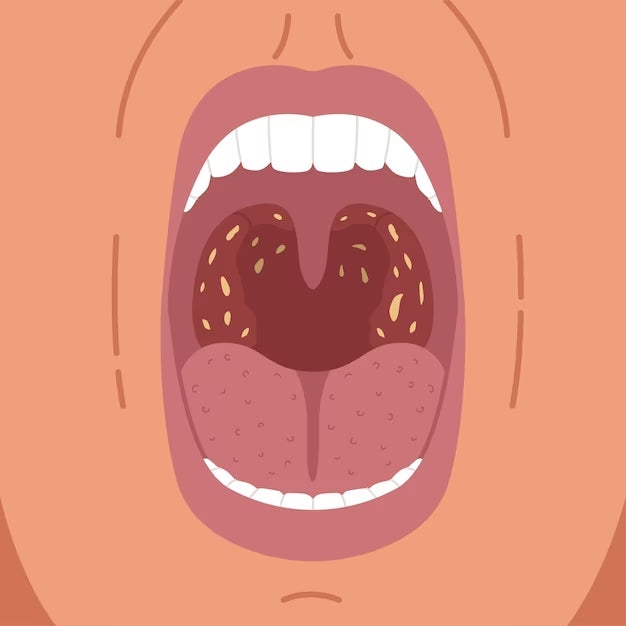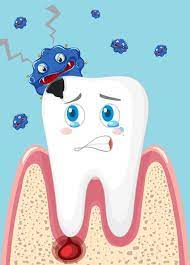The Relationship Between Diabetes and Gum Disease: Understanding the Link
-
Diabetes and gum disease are two conditions that may seem unrelated, but research has shown that they are actually closely linked. In fact, individuals with diabetes are more likely to develop gum disease, and those with gum disease are more likely to have difficulty controlling their blood sugar levels. This article will explore the connection between diabetes and gum disease, and provide insights on how you can reduce your risk of developing both.
The Relationship Between Diabetes and Gum Disease
Diabetes is a condition that affects the body's ability to produce or respond to insulin, a hormone that regulates blood sugar levels. When blood sugar levels are consistently high, it can lead to a range of health complications, including nerve damage, kidney disease, and cardiovascular disease. However, high blood sugar levels can also affect oral health by increasing the risk of gum disease.
Gum disease is an inflammation of the gums that can lead to tooth loss if left untreated. The condition is caused by the buildup of plaque on the teeth, which can eventually lead to infection and inflammation. Research has shown that individuals with diabetes are more susceptible to gum disease because high blood sugar levels weaken the immune system's ability to fight off infections. Additionally, gum disease can make it more difficult for individuals with diabetes to control their blood sugar levels, creating a vicious cycle of worsening symptoms.

Risk Factors for Diabetes and Gum Disease
Several factors can increase your risk of developing both diabetes and gum disease. These include:
Poor oral hygiene:
Failing to brush and floss regularly can lead to the buildup of plaque, increasing the risk of gum disease.Smoking:
Tobacco use can increase the risk of gum disease and make it more difficult to manage diabetes.Age:
Both diabetes and gum disease are more common in older individuals.Genetics:
Some individuals may be more genetically predisposed to developing diabetes or gum disease.Poor diet:
A diet high in sugar and refined carbohydrates can increase the risk of both conditions.How to Reduce Your Risk of Diabetes and Gum Disease
Fortunately, there are several steps you can take to reduce your risk of developing diabetes and gum disease:
Practice good oral hygiene:
Brushing and flossing regularly can help prevent the buildup of plaque, reducing your risk of gum disease.Quit smoking:
If you smoke, quitting can significantly reduce your risk of developing gum disease and improve your ability to manage diabetes.Maintain a healthy diet:
A balanced diet that is low in sugar and high in fiber can help reduce your risk of both conditions.Get regular checkups:
Regular dental checkups can help detect gum disease early and prevent its progression. Additionally, individuals with diabetes should have regular blood sugar screenings to monitor their condition.Manage your blood sugar levels:
Consistently monitoring and managing your blood sugar levels can help prevent complications associated with diabetes, including gum disease.FAQs
Q: Can gum disease cause diabetes?
A: While gum disease does not directly cause diabetes, research has shown that individuals with gum disease are more likely to have difficulty managing their blood sugar levels, increasing their risk of developing diabetes.
Q: How can I tell if I have gum disease?
A: Common symptoms of gum disease include swollen or tender gums, bleeding while brushing or flossing, and persistent bad breath. However, some individuals may not experience any symptoms, making regular dental checkups critical for early detection.
Q: Is gum disease treatable?
A: Yes, early-stage gum disease can typically be treated with improved oral hygiene and regular dental cleanings. More severe cases may require surgery.
Q: Are there any medications that can increase the risk of gum disease?
A: Yes, certain medications, such as steroids, anticonvulsants, and some types of blood pressure medications, can increase the risk of gum disease. If you are taking any of these medications, it is important to maintain good oral hygiene and schedule regular dental checkups.
Conclusion
Nude Mints are a refreshing way to freshen your breath and support your oral health. Made with high-quality ingredients and free from harmful additives, these mints are a great alternative to traditional breath fresheners. Taking steps to maintain good oral hygiene, quit smoking, eat a healthy diet, and manage blood sugar levels can help reduce the risk of developing both conditions and their associated complications. Nude Mints are a great choice, try them today and experience the benefits for yourself.
Don't let bad breath hold you back! Try Nude Mints today and experience the refreshing, gut-healthy benefits for yourself. With our proprietary technology, you can trust that our mints will not only freshen your breath but also support your overall oral and digestive health. Order now and take the first step towards a happier, healthier you!
Get the freshest news on your favorite mouth cleanser and gut freshener!
Read More
-

Halitosis: Understanding the Causes, Diagnosis, and Treatment for Fresh Breath
Halitosis, commonly known as bad breath, is a condition that affects a large number of people worldwide. It can be an embarrassing and isolating experience, but it is important to know that it is a common problem and that there are effective treatments available. In this article, we will discuss the causes, diagnosis, and treatment of halitosis. Causes of Halitosis Halitosis can have several causes, both internal and external. The most common causes include poor oral hygiene, dry mouth, certain foods and drinks, smoking, and certain medical conditions. Poor Oral Hygiene Poor oral hygiene is the most common cause of halitosis. When food particles and bacteria build up in the mouth, they can cause an unpleasant odor. Brushing and flossing...
-

Crucial Connection Between Nutrition and Oral Health: Guide for Better Dental Care
As a dental health professional, we understand the importance of maintaining good oral hygiene to prevent cavities and gum disease. Brushing twice a day and flossing daily are essential habits, but did you know that nutrition also plays a crucial role in keeping your mouth healthy? In this article, we will explore the connection between nutrition and oral health and how you can make better food choices to support your dental health. How Nutrition Affects Oral Health Your diet can impact your oral health in many ways. A diet high in sugary and acidic foods can increase the risk of tooth decay and gum disease. When you eat sugary foods, the bacteria in your mouth feed on the sugar and...
-

How to Treat Bad Breath Caused by Dry Mouth
Do you ever feel self-conscious about your breath? Do people avoid talking to you because of bad breath? Dry mouth, also known as xerostomia, can cause bad breath and make social interactions uncomfortable. In this article, we will discuss what causes dry mouth, how it leads to bad breath, and what you can do to treat it. Table of Contents What is dry mouth? Causes of dry mouth How dry mouth causes bad breath Signs and symptoms of dry mouth Diagnosis of dry mouth Treating dry mouth Home remedies for dry mouth Professional treatments for dry mouth Tips for maintaining oral hygiene Foods and drinks to avoid with dry mouth Conclusion FAQs What is dry mouth? Dry mouth occurs when...
-

The Relationship Between Diabetes and Gum Disease: Understanding the Link
Diabetes and gum disease are two conditions that may seem unrelated, but research has shown that they are actually closely linked. In fact, individuals with diabetes are more likely to develop gum disease, and those with gum disease are more likely to have difficulty controlling their blood sugar levels. This article will explore the connection between diabetes and gum disease, and provide insights on how you can reduce your risk of developing both. The Relationship Between Diabetes and Gum Disease Diabetes is a condition that affects the body's ability to produce or respond to insulin, a hormone that regulates blood sugar levels. When blood sugar levels are consistently high, it can lead to a range of health complications, including nerve...






